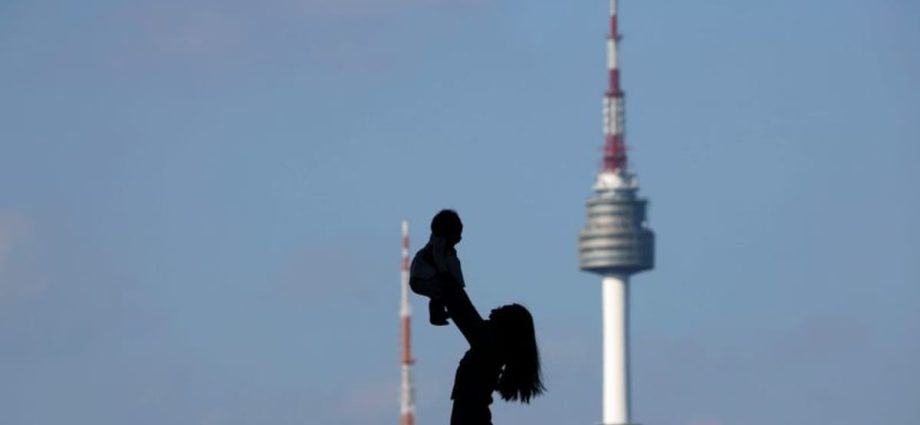
SEOUL: South Korea’s fertility rate, already the world’s lowest, dropped to a fresh record low in 2023, defying the billions of dollars spent by the country to try to reverse the trend as the population shrank for a fourth straight year.
The average number of expected babies for a South Korean woman during her reproductive life fell to 0.72 from 0.78 in 2022, data from Statistics Korea showed on Wednesday (Feb 28).
Since 2018, South Korea has been the only member of the Organisation for Economic Co-Operation and Development (OECD) to have a rate below 1.
The South Korean government has made it a national priority to reverse the falling birth rate and in December promised to come up with “extraordinary measures” to tackle the situation.
Meanwhile, ahead of elections in April South Korea’s major political parties vowed more public housing and easier loans in an effort to stem population decline, aiming to allay fears of “national extinction” as fertility rates crumble.
The parties’ focus on population in their election planks reflects growing alarm after spending of more than 360 trillion won (US$270 billion) in areas such as childcare subsidies since 2006 has failed to reverse record low fertility rates.
Being married is seen as a prerequisite to having children in South Korea, but marriages are also falling in the country with high financial burden cited as the main reason.
South Korea is not alone in the region struggling with a rapidly ageing population. The fertility rate in neighbouring Japan’s hit a record low of 1.26 in 2022, while China recorded 1.09, also a record low.
In South Korea, the capital Seoul had the lowest fertility rate of 0.55 last year.
South Korea has previously projected its fertility rate is likely to fall further to 0.68 in 2024.

